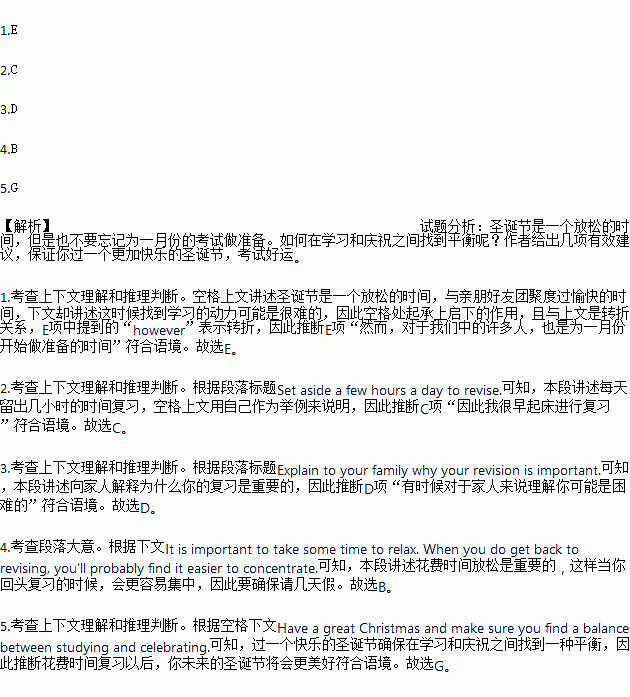题目内容
Christmas is a time for relaxing, having fun and spending time with family and friends. 1.It can be difficult to find the motivation for study when everyone around you is having so much fun. So, here are my top five tips for revising effectively over the Christmas break.
Set aside a few hours a day to revise.
Find the best time to revise and make sure that you stick to your timetable! For example, I find that I work best in the morning. 2.
Plan something fun to do every day.
Even if it’s just going for coffee with a friend or watching a film at home, this will give you something to look forward to and motivate you to finish your revision.
Explain to your family why your revision is important.
3.So, make efforts to tell them why your exams are important. Perhaps you can agree to do something nice with them when your exams are over.
4.
It is important to take some time to relax. When you do get back to revising, you’ll probably find it easier to concentrate. Pick the most important days for you and your family to concentrate on celebrating Christmas!
Remember that it won’t last forever.
You might have to spend your Christmas revising this year, and perhaps for a few more years, but soon enough you’ll be free of exams forever. 5.Have a great Christmas and make sure you find a balance between studying and celebrating. Good luck in your exams!
A. Spare your time for your family.
B. Make sure that you take a few days off!
C. So I get up fairly early and do a few hours of revision.
D. Sometimes it can be difficult for family to understand you.
E. However, for many of us, it is also time to prepare for January exams.
F. Otherwise, you may probably fall into trouble with your friends and family.
G. And after spending time revising, your future Christmases will seem even better!

